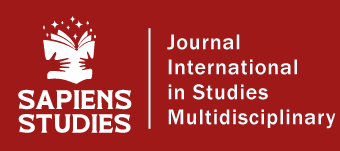Digital convergence: Radio SuperTropicana 105.9, multimedia content and audiovisual production
DOI:
https://doi.org/10.71068/rr2j7t35Keywords:
multimedia, brand, strategies, technology, informationAbstract
This article is the product of the final degree work for obtaining a Bachelor's Degree in Design and Communication at the University of Palermo, entitled “Multimedia as a content generator. Audiovisual Production of News for Radio Super Tropicana”, belonging to Daniel Perez, the overall objective was based on defining the audiovisual content for radio, focused on digital platforms to maximize its audience, for which the descriptive and exploratory methodology was used, with a qualitative approach, where the theoretical framework provided the conceptual and theoretical framework for analysis, in addition to the SWOT described characteristics and context of the company to identify internal and external elements that affect it, business strategy and finally with the application of an interview was obtained a deeper insight into the subject and its reality, with which it was concluded that; The radio requires digital presence to increase its audience, and the management of strategies that allow it to connect emotionally with it, it is also highlighted that the technological challenges give way to the traditional press to enhance its content and adapt to current demands, finally with the contribution from the design and business administration, graphic and strategic parameters of the proposal delivered will be analyzed.
References
Alonso, G., & Arébalos, A. (2011). La revolución horizontal. Libros en red.
BBC. (2020). BBC. Media Centre: https://www.bbc.co.uk/mediacentre/latestnews/2020/corona-bot
Dörner, R., Grimm, P., & Abawi, D. (2002). Synergies between interactive training simulations and digital storytelling: a component-based framework. 26(1).
Jenkins, H. (2008). Convergence Culture. La Cultura de la convergencia de los medios de comunicación. En H. Jenkins, Convergence Culture. La Cultura de la convergencia de los medios de comunicación (Vol. 1, pág. 293). Barcelona, España: Paidós, Ibérica, S.A.
Koci, R., & Rue, J. (2016). The Principles of Multimedia Journalism Packaging Digital News. Taylor & Francis Group.
Lara, T. (2008). La nueva esfera pública. Los medios de comunicación como redes sociales. Revista Telos 76: https://dialnet.unirioja.es/servlet/articulo?codigo=2705534&orden=169682&info=link
McLuhan, M., & Nevitt, B. (1972). Take Today: The Executive as Dropout. Harcourt Brace Jovanovich.
McLuhan, M., & Powers, B. R. (1995). McLuhan, M. y Powers, B. (1995) La aldea global. Transformaciones en la vida y los medios de comunicación mundiales en el siglo XXI. Barcelona, España: Gedisa.
Nations, U. (2015). United Nations Department of Economic and Social Affairs Sustainable Development. https://sdgs.un.org/2030agenda
Rodríguez, J. (2006). El relato digital. Libro de Arena.
Salaverría, R. (2001). Aproximación al concepto de multimedia desde los planos comunicativo e instrumental. Revistas Científicas Complutenses: https://revistas.ucm.es/index.php/ESMP/article/view/ESMP0101110383A/12866
Sánchez, M., & Pinochet, G. (2017). El rol de las redes sociales virtuales en la difusión de información y conocimiento: estudio de casos. Universidad & Empresa, 19(32), 107-135.
Suárez, D. M. (2022). Multimedios como generador de contenido Producción Audiovisual de Noticias para Radio SuperTropicana 105.9 FM. Proyecto de Graduación: https://fido.palermo.edu/servicios_dyc/proyectograduacion/archivos/6406.pdf
Tufekci, Z. (2017). En Twitter and Tear Gas: The Power and Fragility of Networked Protest (Vol. 1, pág. 360). Yale University Press.
Zaragoza, C. (2002). Periodismo en la convergencia tecnológica: el reportero multimedia del Distrito Federal. Revista Mexicana de Ciencias Políticas y Sociales, pp. 151- 164. Obtenido de: https://www.redalyc.org/pdf/421/42118509.pdf
Zaleski, A. (2024). Cómo crear una estrategia de marketing. Obtenido de: https://es.squarespace.com/blog/como-crear-una-estrategia-de-marketing
Downloads
Published
Issue
Section
License
Copyright (c) 2025 Sapiens Journal Multidisciplinary Studies

This work is licensed under a Creative Commons Attribution 4.0 International License.
Los artículos publicados en la revista se distribuyen bajo la licencia Creative Commons Atribución 4.0 Internacional (CC BY 4.0). Esta licencia permite a terceros descargar, copiar, distribuir, adaptar y reutilizar una obra, incluso con fines comerciales, siempre que se otorgue el crédito adecuado al autor original.



